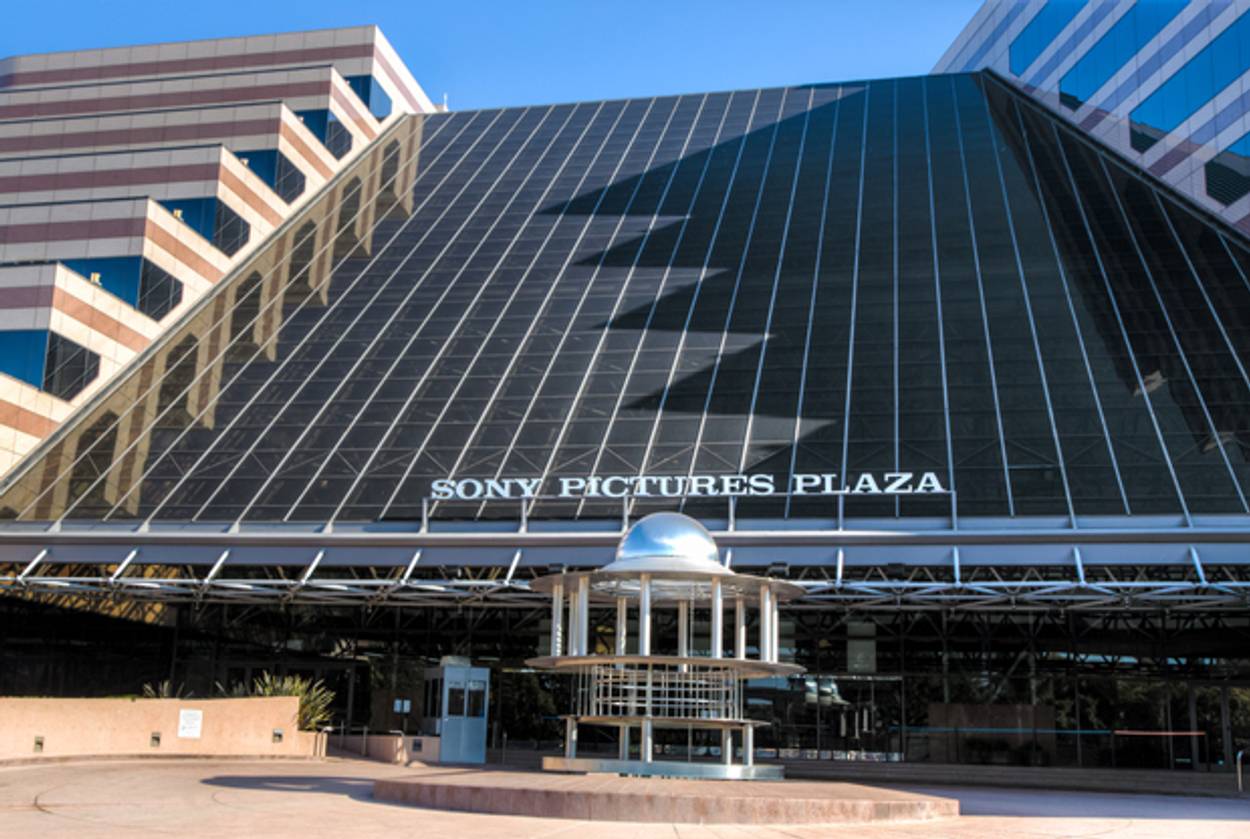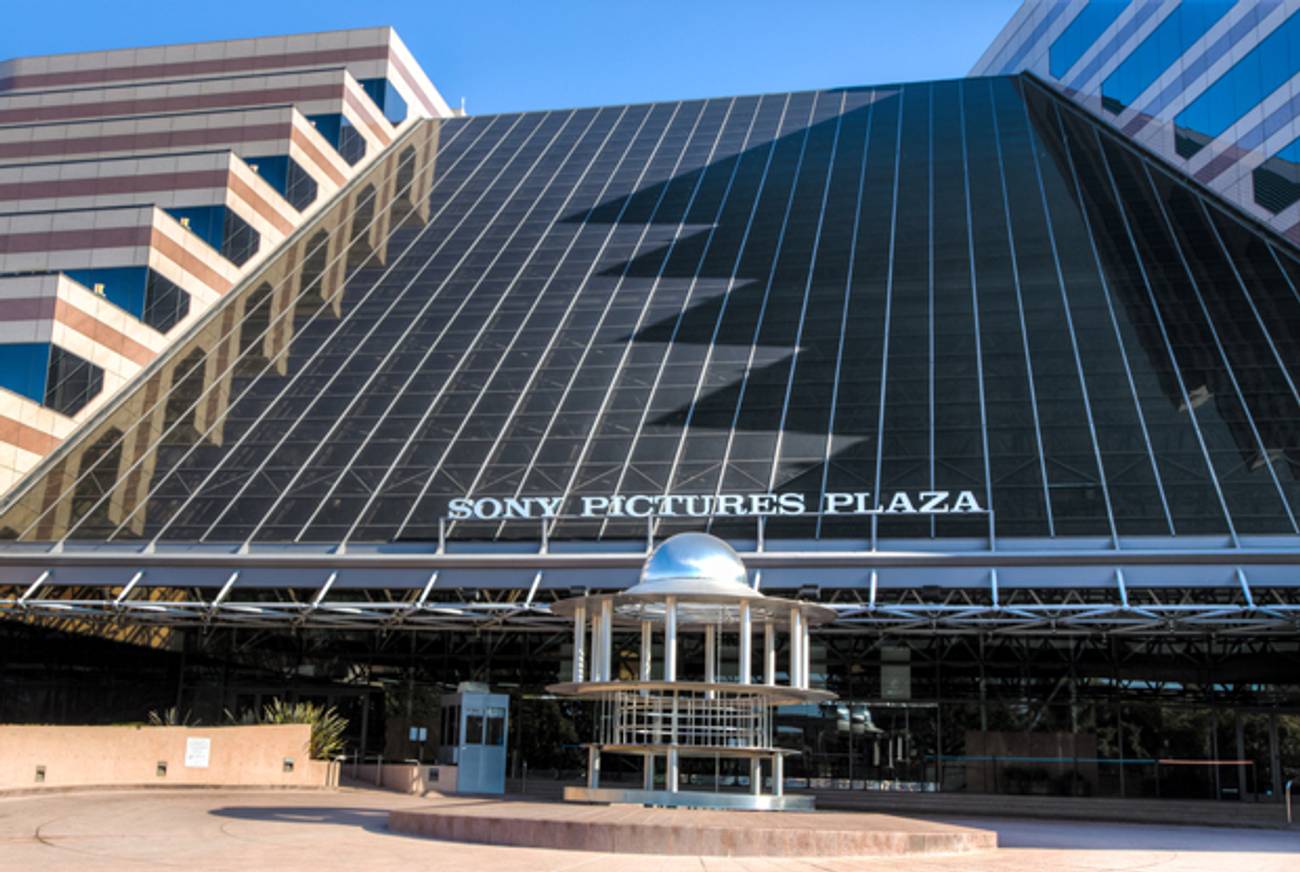What the Sony Hack Reveals About Hollywood
And how leaked email gaffes could impact the entire industry




By now, the leaked emails between Sony co-chair Amy Pascal and multi-hyphenate super-producer Scott Rudin (among others)—the result of a hack that in true Hollywood blockbuster fashion may or may not have been the work of nefarious North Koreans bent on preventing the release of… wait for it… a Seth Rogen movie—have become the stuff of legend.
Like everyone in the entertainment community, I have read the leaks with rapt, if somewhat ashamed, attention, and like everyone in the entertainment community, I am shocked, shocked, that they weren’t way worse. Angelina Jolie a “minimally talented spoiled brat”? Is that really the best a man of Rudin’s storied taste and erudition can do? Being peeved that $3 million dollars apparently doesn’t buy you a couple of rote tweets from Kevin Hart promoting his own movie? Sounds reasonable enough to me. Certain Fourth Estate types seem very concerned that Maureen Dowd offering to allow Pascal’s husband, former Times-man Bernard Weintraub, to see a profile Dowd wrote of Pascal before it went to press is a real threat to serious journalism, but let’s be real: Anyone who thinks Maureen Dowd is a serious journalist has bigger problems than that.
The revelation that has people most riled up, of course, is the “racially charged,” “inappropriate,” and, depending how charitable one is feeling, “bigoted” exchange between Pascal and Rudin, in which they joke mildly about how it might be funny to ask President Obama what he thought of Django Unchained at a fundraising breakfast that none of them wanted to be at.
The reaction was swift and harsh, and it reached everywhere from Twitter to the comments section of Deadline, where it only took about four comments before the subject of Israel came in relation to this “gaffe” between two Jewish executives. (Sigh.) Some have even suggested hypocrisy on the part of Pascal, who was one of the first Hollywood big shots to publically state she would no longer work with Mel Gibson after his outburst (one, may I remind you, of several) in which he stated that “Jews are responsible for all the wars in the world.” One is an anti-Semitic canard that, repeated in various forms throughout history, has cost millions and millions of innocent lives; the other is a joke that should garner about one second of polite and mirthless laughter in one of Bill Maher’s opening monologues, but the right to be offended has become such a part of American life I wouldn’t be surprised if it was ratified as a new article to the Constitution. (There’s no word on whether the President himself feels slighted by Pascal and Rudin’s remarks, although I imagine if he was going to take offense at anything last week, it might have been the racist lynch mob—excuse me, Tea Party patriots—gathered outside his home shouting their intention to “hang the lying Kenyan traitor” from the nearest tree.)
The end result of all of this, it seems, is that the adjective “embattled” is being used in connection with Pascal so much that one could be forgiven for wondering if she’s legally changed her name. The L.A. Times, Deadline, Variety, et al. have speculated on whether her 30-year tenure at Sony, a studio where she has profitably ushered into being more films starring women and African Americans than virtually any other studio chief working today, will survive. She may, she may not. But to those calling for her head, I would ask that you keep this in mind: If Amy Pascal is fired, it won’t just hurt Amy Pascal. It will affect every executive she has ever mentored, who will be swept away to make room for a new administration. It will put in jeopardy ever director and writer and fledgling producer who has worked for years to get a project in development at Sony. It will destroy the chances of every unreleased film she has greenlit, which will still be made but will see their budgets slashed, their material and creative support falter, and their commercial prospects dim as new leadership moves to distinguish their projects from hers, with negative repercussions for hundreds, if not thousands of careers.
In Hollywood, as in any dictatorship, regime change is inevitable, but it’s always the little people who suffer, which is why they know enough to say this sort of thing over the goddamn phone.
Previous: The Hollywood Mogul Who Saved My Father’s Life
Related: Seth Rogen Exemplifies the Jewish Journey From Chosen People to Just Showing Up
Rachel Shukert is the author of the memoirs Have You No Shame? and Everything Is Going To Be Great,and the novel Starstruck. She is the creator of the Netflix show The Baby-Sitters Club, and a writer on such series as GLOW and Supergirl. Her Twitter feed is @rachelshukert.